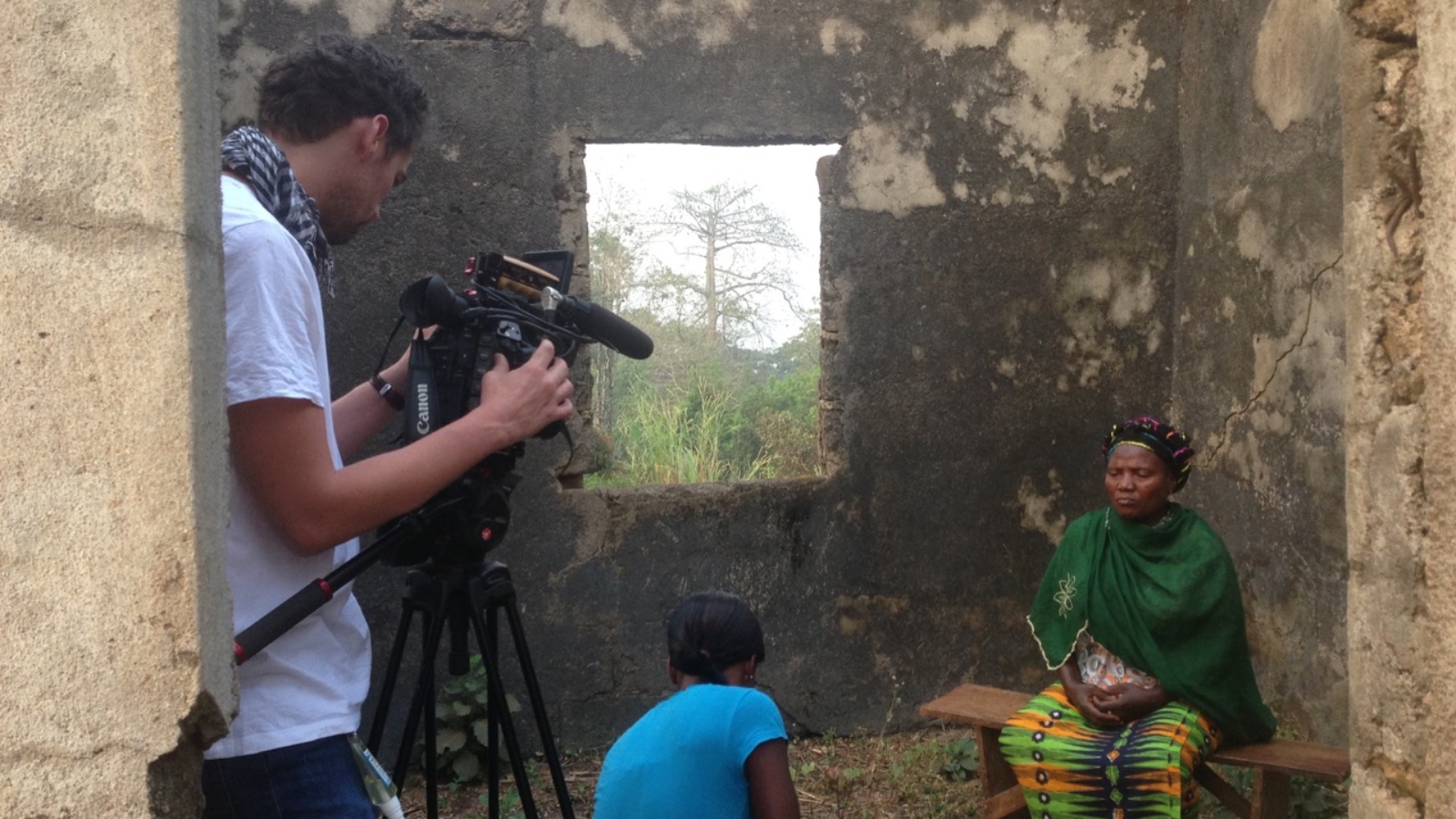This article was originally published on Ebola Deeply.
By Kate Thomas
Ebola Deeply: Dan, tell us about the vision behind FRONTLINE (PBS)' "Outbreak."
Edge: Rather than making an experiential on-the-ground film about how the world was trying to contain the outbreak, we wanted to go right back to the beginning and recreate the path of the virus. Sasha Achili, the producer, and I realized that the story was one that had already happened; it was the story that nobody was covering back in December 2013, the story of how and why the virus spread so much before the world really did anything.
We decided to start in the village of Meliandou in Guinea's forest region, where the first case is thought to have been. We were six months behind the virus, going to places where the virus had passed through and destroyed communities. We wanted to try to piece together the chain of transmission, but also to unpick the crucial decisions—or sometimes lack of decisions—that led to the outbreak becoming the worst the world has ever known.

Director Dan Edge during the filming of "Outbreak"
Ebola Deeply: So you went back to the source of the outbreak, in Meliandou, tracing its path through Sierra Leone and Liberia. What were the challenges?
Edge: Firstly, there were practical difficulties in getting to those places in the middle of an Ebola outbreak. It was quite difficult to persuade the broadcasters—this was for the BBC, as well as for PBS—that we could make this film and stay safe. We were a very long way from any Ebola treatment units, and there were still plenty of cases in the forest region when we were there. The first challenge was keeping ourselves safe.
The second challenge was persuading people to talk. There remains, especially in Guinea, a huge amount of suspicion about the motives of foreigners, whether it's journalists or health workers or anyone, and that's been a major problem in tackling the outbreak. Meliandou, the village where the outbreak likely began, had been pretty much ostracized by the surrounding villages. It was hard for people to trade: nobody would buy any food that was grown in Meliandou.
We spent over a week going back and forth between Gueckedou and Meliandou, and people eventually opened up to us. Once other villages saw that we were going into Meliandou and coming out alive, the stigma seemed to dissipate. By the time we left, Meliandou had actually opened up again. It was great to make a small difference in that way.
Ebola Deeply: This outbreak has been a crisis of information as much as a health crisis. Did you find a coherent narrative?
Edge: I got a really good insight into just how difficult it is to trace and monitor these chains of transmission in real time. Particularly as the outbreak began in this area near three international borders, it's quite easy as a journalist to say that the countries should have been talking more about cross-border transmission, but I found that some communication in that part of the world is fragile and difficult. It's hugely difficult to get your work done as a journalist, and it's much harder to co-ordinate and contain an Ebola outbreak than it is to be a journalist.
Even with the luxury of time and resources that we had, it was hugely difficult to trace a coherent chain of transmission. That said, we did manage it, and found out some really important stuff about how the virus crossed into Sierra Leone, and how it could have been stopped. It's very easy, from far away, to sit back and say there should be better contact tracing, or a more co-ordinated response, but the reality there was very different.

Ebola health workers at ELWA Hospital in Monrovia, Liberia
Ebola Deeply: And then you faced another challenge: conveying the story to an international audience that, for the most part, hasn't been to Guinea, Liberia or Sierra Leone. How did you tackle that?
Edge: One of the major problems in the villages—particularly in Guinea and Sierra Leone—was a complete lack of trust between villages and cities. Rural areas are used to being lied to by their governments, and so they simply did not believe what they were being told about Ebola. There was fear, suspicion, and panic.
But actually, if you look at the response in the U.S. in October when there was a mini outbreak in Texas, there was also fear, suspicion, and panic. People were also afraid that the government was lying. What I hope our film will do is show that the response that was very prevalent in the U.S. media especiallye—the fear, the desire to get down in our bunkers and shut these countries off; to deal with the outbreak by keeping it at arm's length—is precisely the wrong thing to do in an outbreak like this.
What our film—and other good journalism on the Ebola outbreak—has done is to show that we really are all connected. You can't close borders and you can't stop all air travel. The only way to keep ourselves safe from the next big outbreaks is to strengthen health systems in the countries where they begin.
For more with Dan Edge, don't forget to check out the complete interview on Ebola Deeply.
*****
*****
Kate Thomas is a contributor at Ebola Deeply.
[Photos courtesy of Ebola Deeply]